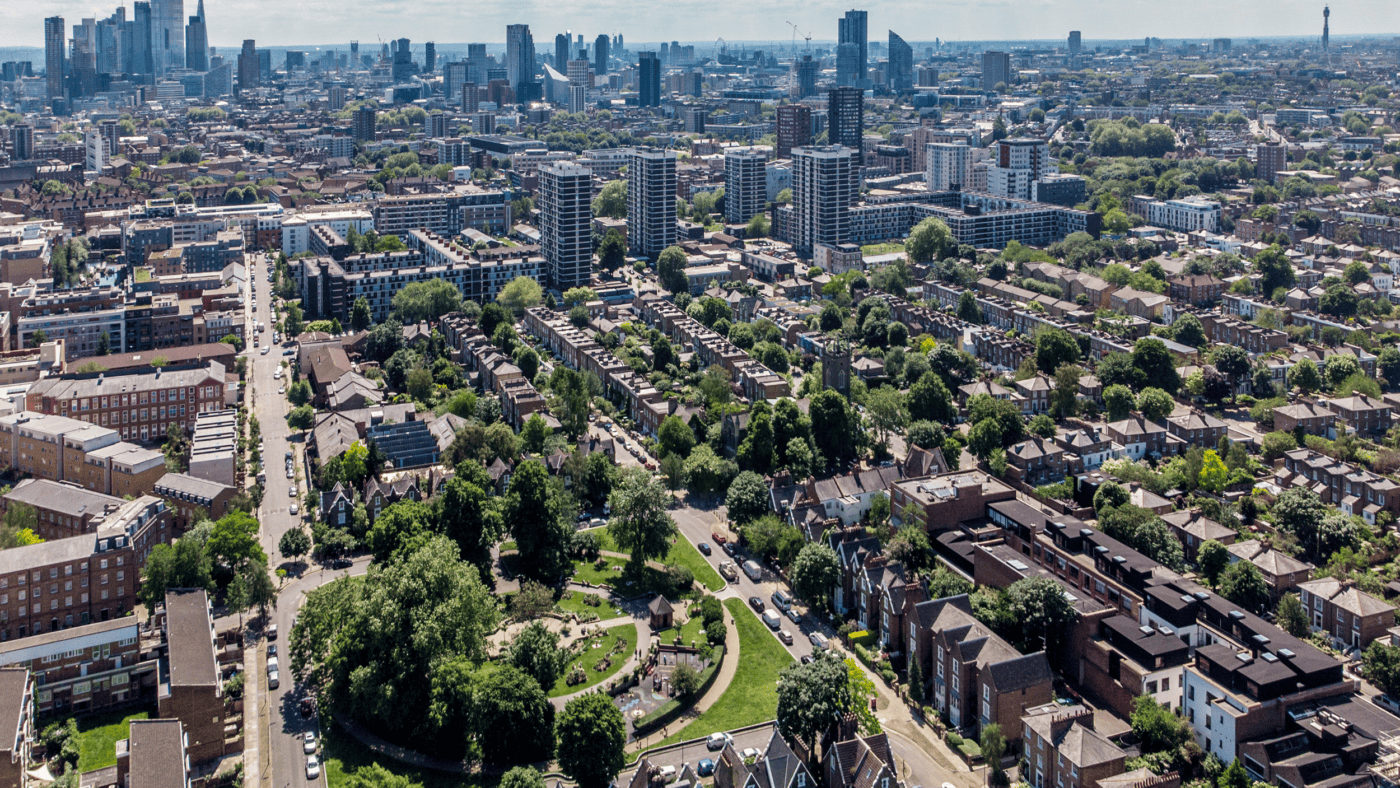Compulsory purchase is an important institution. As the great economic historian Dan Bogart has argued, Britain made abundant use of compulsory purchase in building its canals and railways, which in turn helped it to lead the Industrial Revolution. Only anarcho-libertarians should oppose all forms of compulsory purchase in all cases.
At the same time, compulsory purchase is obviously dangerous. In the middle decades of the twentieth century, vast swathes of British cities were destroyed by local councils in misguided urban clearance schemes. We are astonished to learn today that Covent Garden, De Beauvoir Town and Jericho barely avoided demolition. Many other neighbourhoods were not so fortunate. At Great Yarmouth, to pick one of a hundred examples, the authorities demolished one of the greatest pieces of medieval urbanism in Europe.


Urban clearance in Great Yarmouth. Source: Britain from Above, Google Maps.
Compulsory purchase is also a precarious institution. To its credit, the British public is deeply uneasy about expropriating and demolishing people’s homes for the supposed greater good. In point of fact, as I have said, we do sometimes have to do this to deliver projects of great public importance. But it is important that we do so with restraint and care, not least because it is only thus that we can preserve the fragile legitimacy of compulsory purchase when we really need it.
In the Levelling Up and Regeneration Act (LURA), the last government expanded compulsory purchase powers by removing the requirement that councils compensate people for ‘hope value’. Hope value is the value that land has in virtue of the hope that it might get planning permission for some kind of development. When normal people buy land, they always have to pay for its hope value (if it has any). In the LURA, the Government exempted councils from this responsibility.
Scrapping the requirement to pay hope value is perilous. The people whose land councils are expropriating had to pay for any hope value it had, while the councils don’t. This means that where land has substantial hope value, councils will frequently pay people less for their land than they had to pay themselves. Anyone who has taken on debt to pay for their land thus stands to be financially ruined when their homes are compulsorily purchased.
When the land in question is owned by speculators or aristocrats, this may not feel too shocking. But compulsory purchase powers cover all land, including ordinary homes. Anyone who has taken out a mortgage to buy a family home may thus be placed in a situation of extreme financial vulnerability if the council decides to include that home in a compulsory purchase scheme. We arrive at what, for a free country, is rather a remarkable situation, in which the state can expel people from their homes and pay them less in compensation than they need to cover the debts they took on to purchase those homes in the first place.
The last time we had rules like this, in the mid-twentieth century, they proved unsurprisingly controversial. Horrible cases of ruined lives shocked the public and led to a successful campaign for reform. It is unverifiable but plausible that the resulting backlash against compulsory purchase is one of the things that makes infrastructure so difficult to build today.
In fairness to the LURA, however, it included an important safeguard: compulsory purchase could only take place with the agreement of the national government. This greatly lowered the likelihood of its excessive use. Britain’s hundreds of local authorities include some pretty eccentric and badly-run administrations. A number are bankrupt, and at least one has a record of grave recent corruption. Some local authorities are also basically one-party monopolies, like Labour councils in inner cities. The national government is likely to take a fairly sober approach to compulsory purchase. But the likelihood is high that some local councils would take an extremely cavalier one if they were allowed to.
The Planning and Infrastructure Bill removes this safeguard. Local authorities will be able to compulsorily purchase land (including homes), without paying hope value, and without the agreement of the national government. This of course includes the incompetent councils, the corrupt councils, the far-left councils, the bankrupt councils and the electorally uncompetitive councils. As one builder put it to me, ‘it will be cowboys at noon’.
This should worry those who value private property rights. But it should also worry those who value compulsory purchase. It is hard to see how these rules can fail to generate horror stories of ruined lives, further undermining the legitimacy of compulsory purchase in the long run. Miserly compensation rules may well prove a false economy for the British state as a whole.
The Planning and Infrastructure Bill is almost certain to pass through Parliament, which overall it deserves to do. But the Opposition should resist the compulsory purchase clauses vigorously. To maximise the prospects of succeeding with an amendment, they might wish to focus specifically on protecting homeowners by retaining the requirement for councils to obtain consent from the national government where homes are being compulsorily purchased. If the Opposition repeatedly pushes for an amendment on this, they would have some prospect of succeeding. We should all hope that they do.
Click here to subscribe to our daily briefing – the best pieces from CapX and across the web.
CapX depends on the generosity of its readers. If you value what we do, please consider making a donation.


